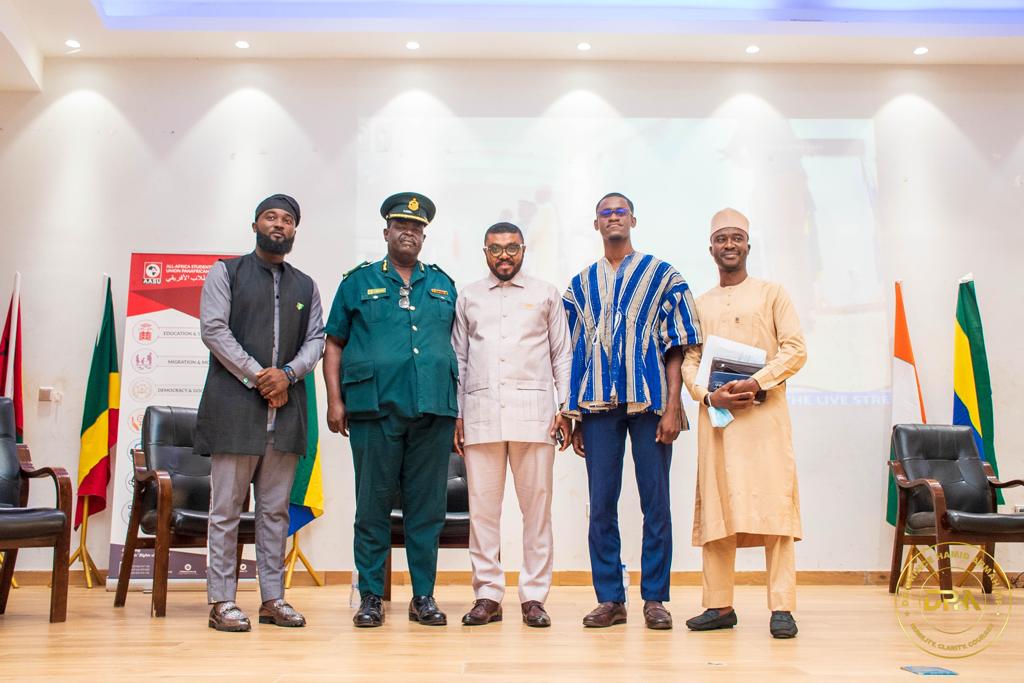Nana Appiagyei Dankawoso I, President General of the West African Nobles Forum (WANF), encouraged Ghanaian schools to take advantage of the advancement in information technology (IT) for comprehensive educational delivery and quality.
He said it was imperative that educational institutions adapt to using “what is now commonly available to push content to students, professional development and lifelong learning strategies. the life”.
Nana Dankawoso, who was addressing Jackson College of Education’s (JCE) ninth congregation, held virtually at its Ayeduase New Site campus in the Ashanti Region, said 21st century education relies on technology.
According to him, the use of e-learning platforms to facilitate academic programs globally had become the order of the day.
The new trend helps break down geographic and physical barriers in education, especially in disadvantaged and hard-to-reach communities, he observed.
Nana Dankawoso, the former president of the Ghana National Chamber of Commerce and Industry, described as encouraging the government’s resolve to equip teachers with laptops and other technological know-how to help them in the education.
It was a step in the right direction, he noted, saying there was no better investment than in education given its ability to transform people’s lives for the better.
He commended JCE management for redesigning and using online platforms to carry out the College’s academic programs in the wake of the COVID-19 pandemic, which has limited physical contact and movement of students.
The General President of WANF argued that a good education system should be the goal of the nation since it was the quality of manpower that determined the progress of any society.
He applauded the Jacksons (Professor and Mrs. Jackson), founders of the College, for their investment in education and their determination to produce motivated teachers for society.
Ms. Theodosia W. Jackson, Director of the JCE, said the authorities appreciate the fact that the world is gradually moving towards a technological society.
Therefore, the College decided to make full use of information, communication and technology (ICT) to augment teaching and learning through a virtual classroom and an electronic library system accessible on SMART devices and computers.
“JCE is also partnering with NIIT-India to improve students’ ICT knowledge and skills,” Ms. Jackson noted.
She indicated that various workshops/webinars had been organized to train students and tutors on the different tools associated with the use of the learning management system (LMS).
“Our students are also introduced to the Student Information System to help them access administrative and academic resources and services,” she said.
The Principal said that the College held a Capacity Building Seminar (CBS) with the aim of creating an arena to train students to acquire and retain the knowledge and skills necessary to accelerate their professional skills and employability.
The congregation saw a total of 1,924 trained teachers, including 803 men and 1,121 women receive certificates.
JCE, established in 2009, is the teacher education division of the Jackson Educational Complex (JEC) and the first private college of education in Ghana accredited to run a three-year diploma program in basic education through distance learning .
Over the years, it has produced 12,411 graduates, including 6,246 men and 6,165 women, imbuing them with the principles of academic excellence, integrity, stewardship, lifelong learning and respect.
Master Kamal Sadick, the best student of the JCE class of 2021, in a farewell speech, said that the experiences acquired during their three years of study had prepared the students adequately for their professional life.
To follow Ghana News to google News



